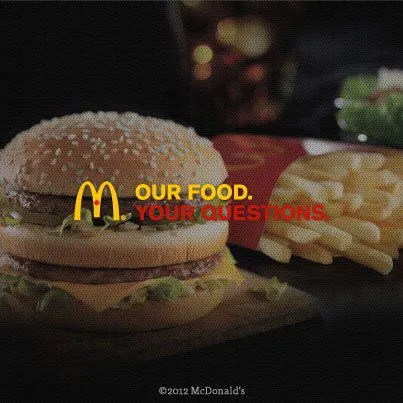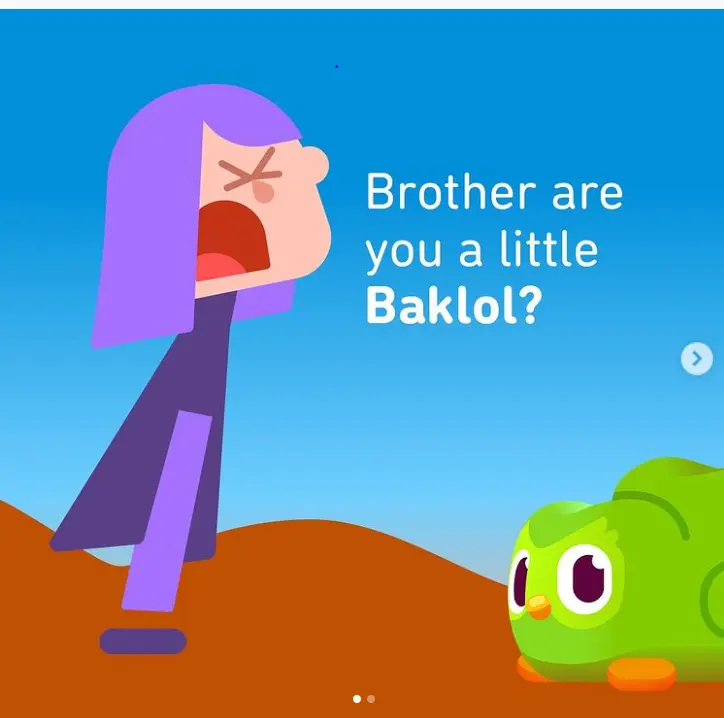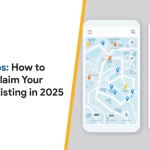
Gen Z Marketing: How do you make it right?
This guide covers what Gen Z cares about, where they spend time online, and how they shop, helping marketers connect with them.
To connect with Gen Z, emphasize authenticity, transparency, and social responsibility. Use TikTok and Instagram, share content from your audience, and team up with influencers who align with their interests.
Marketing to Gen Z is different from marketing to any other generation. They value authenticity and relevance more than anything else. To reach them, brands need to be real, relatable, and focused on what truly matters to them.
Who is the Gen Z Generation?
“Zoomers” is another term for Generation Z, frequently shortened to “Gen Z.” These people were born between 1996 and 2012, or in the late 1990s and early 2010s.
As the first generation to have grown up in an age where social media, technology, and rapid connectivity are essential parts of everyday life, they are called the original digital natives.
Why is the Gen Z Generation different from others?
Digital media trends differ according to age group, according to a Deloitte analysis featured on Forbes. While there are many benefits to marketing to Generation Z, particular difficulties must be overcome.
The fast-paced digital world that Gen Z grew up in has caused them to have shorter attention spans. They choose companies that share genuine stories, embrace humor without adhering to cliches, and highlight real-world experiences.
Because Gen Z was raised in an era where privacy concerns were crucial, they are more careful when disclosing personal information.
Brands with a distinct mission and a solid dedication to environmental and social problems appeal to young people.
Understanding and addressing their concerns and challenges is the first step in marketing to today’s generation.
Marketing Strategies for Gen Z
When considering the behaviour of Gen Z consumers and the associated challenges, marketers must consider these six strategies to connect with this target generation effectively.
Establish Clear Values and Mission:
Define your brand’s values and mission before marketing to Gen Z or any other generation.
Stay honest and authentic. This means sticking to the brand’s core principles and influencing Gen-Z in an approachable manner about the benefits of the good or service.
For Example, Levi’s latest marketing campaign, Buy Better, Wear Longer, made quite an impact.
The basic idea is that you can wear clothes longer if you purchase higher-quality items. Also, by wearing clothes for a longer period, you can reduce waste and environmental damage.

source: https://www.levistrauss.com/
Be Transparent
The following action in your Gen Z marketing plan is to be transparent and responsible for any public mistakes you make.
Therefore, to establish a connection with this generation of consumers, brands must be upfront about their values, practices, and beliefs. As a result, people from Generation Z will be more able to make judgments and understand the social, environmental, and financial effects of your brand.
Gen Z-ers prioritize issues like diversity, sustainability, ecology, world hunger, and climate change among the essential brand characteristics that appeal to them.
For instance, McDonald’s Canada’s “Our Food, Your Questions” campaign is one of the most talked-about transparency marketing campaigns. During the campaign, customers can openly ask questions, which also gives McDonald’s a chance to debunk rumours, inform consumers, and stand behind its goods.

source: http://mcdonalds.ca/yourquestions
Be Entertaining
Gen Zers are exceptionally good at content filtering. Gen Zers are different from previous generations in terms of what they find humorous or entertaining, ranging from their attraction to fast-paced entertainment to the odd meme culture.
Additionally, people enjoy advertisements that are both humorous and imaginative in the way they showcase the goods.
You can dispel doubt and establish more sincere relationships with Gen Z viewers by utilizing humour and entertainment.
Work with Influencers
Influencer marketing is becoming a part of the marketing strategy of today’s generation.
Furthermore, Gen Z generally trusts influencer recommendations more than conventional advertising. Therefore, it is essential to work strategically with content creators and influencers who share your goals and target demographic.
Influencers can stir up attention for new product launches by sponsoring freebies and contests or by posting unboxing videos and reviews.
Establish Brand Identity
The first question you need to ask yourself is whether Gen Z will be able to relate to your brand. Do you have a brand voice that appeals to Generation Z consumers?
To create an identity that is more approachable to a Gen Z audience, one should consider their hobbies, preferences, and way of speaking in social interactions.
For instance, by redefining its brand to appeal to young people of all ages, Duolingo has become a well-liked internet brand using humour and a bold, unpredictable image.

source: https://www.instagram.com/duolingo_india
Prioritize Personalisation
Generation Z wants to see relatable, genuine people. The issues and viewpoints that your audience has should be reflected in your advertising content.
Expensive performers, long text passages, or a sales-focused tone in your commercial will not win over this audience.
Personalized marketing could prove successful in a generation that finds it challenging to stick with one single brand.
Marketing personalization can take many forms, from product suggestions to email campaigns and social media ads.
Speak Gen Z’s Language
If you want to connect with Gen Z, you need to be where they spend their time. They’re not watching TV ads or reading long emails—they’re scrolling through social media, engaging with content that feels real and relatable.
- TikTok & Instagram: These platforms are where Gen Z discovers trends, engages with brands, and shares their daily lives. Short, creative videos, behind-the-scenes content, and interactive posts help build a genuine connection. Instead of pushing sales, focus on storytelling and value-driven content.
- Snapchat: This is perfect for casual, in-the-moment content. Features like disappearing messages and AR filters make engagement feel fun and exclusive, helping brands feel more personal and approachable.
- YouTube: While Gen Z loves quick content, YouTube is still their go-to for deeper dives—whether it’s product reviews, tutorials, or brand stories. Longer videos allow brands to build trust and provide valuable insights that other platforms can’t.
Create Content They Want to See
Gen Z doesn’t just watch content—they interact with it. To grab their attention, your content should feel fresh, fun, and engaging.
- Short-Form Videos: Quick, punchy videos work best because Gen Z’s attention span is short. Hook them in the first few seconds with eye-catching visuals, trending music, and straight-to-the-point messaging.
- Interactive Content: Polls, quizzes, and challenges make them feel involved. They love brands that listen and engage with them, rather than just talking at them.
- Humor & Entertainment: A little humor goes a long way. Whether it’s a funny meme, a lighthearted video, or a relatable moment, making them smile makes your brand more memorable.
- User-Generated Content (UGC): Gen Z prefers genuine people over promoted advertisements. Motivate people to share their own brand-related experiences. It’s a great way to build trust and show authenticity.
Work with Influencers Who Feel Real
Gen Z follows influencers they connect with, not just big celebrities. Choosing the right people to represent your brand makes all the difference.
- Micro-Influencers: Smaller influencers often have stronger connections with their followers. They feel like a friend giving recommendations rather than a company pushing ads.
- Relevant Influencers: Partner with influencers who naturally align with your brand. A beauty brand should work with skincare experts, while a fitness brand should collaborate with trainers. It makes endorsements feel genuine.
- Authentic Partnerships: Gen Z sees right through forced promotions. Let influencers create content in their way while integrating your brand naturally. It feels more real, and that’s what resonates with them.
Update your marketing for Generation Z
Connecting with young people may seem challenging, but that doesn’t mean you can’t reach them.
By using the right platforms, creating content they enjoy, and working with influencers they trust, you’re not just selling a product—you’re building a community. And for Gen Z, that’s what makes a brand worth following.
Partner with us today, the best digital marketing company, to build strong branding and relationships.
FAQ
Frequently Asked Question
Gen Z (born between 1997–2012) makes up over 30% of the global population and is becoming one of the most influential consumer groups. They are digital natives who influence household purchases and drive trends on social media. Marketing to Gen Z is important because:
- They expect authenticity and personalized content.
- They prefer video content, especially on platforms like YouTube, TikTok, and Instagram.
- They support value-driven brands that are inclusive, sustainable, and socially responsible.
Here are a few great Gen Z marketing examples from 2024:
- Nike launched a TikTok campaign using real stories of young athletes, getting millions of views.
- Duolingo used humor and trending TikTok sounds to grow its Gen Z audience rapidly.
- Starbucks created a mobile-first loyalty program with personalization and gamification, which kept Gen Z users engaged.
These brands succeed by being relatable, using humor, and participating in social conversations.
| Feature | Gen Z | Millennials |
|---|---|---|
| Platform Preference | TikTok, Instagram | Facebook, Instagram |
| Content Style | Short-form video, real-time | Polished posts, blog-style |
| Brand Expectations | Authenticity, values-based | Convenience, customer service |
| Purchase Behavior | Social commerce, peer reviews | E-commerce, email offers |
Gen X (born between 1965–1980) prefers clear, detailed, and informative content. Here’s what works best:
- Use email marketing and Facebook ads — they’re active on these platforms.
- Highlight product value, reliability, and long-term benefits to earn their trust.
- Offer loyalty programs and discounts — they appreciate straightforward deals.
- Focus on customer support, as they trust brands with a solid track record.
Some important Gen Z marketing stats in 2024 show how their preferences are shaping brand strategies:
- 74% prefer brands that respond on social media.
- 60% are more likely to buy from brands that take a stand on social issues they care about.
- Over 65% discover new products through TikTok or Instagram Reels.
- 58% want personalized recommendations based on their behavior or interests.
They are highly influenced by user-generated content and online reviews.
Gen Z’s behavior in 2024 is forcing brands to adapt in several key ways:
- Create more authentic and interactive content to build trust and relevance.
- Focus on sustainability and social impact messaging to align with Gen Z values.
- Invest in short-form video and influencer collaborations to capture their attention.
- Use mobile-first design and fast checkout options to meet their digital expectations.
- Build community through engagement—not just traditional advertising.
They want to feel connected to a brand and its values—not just its products.




